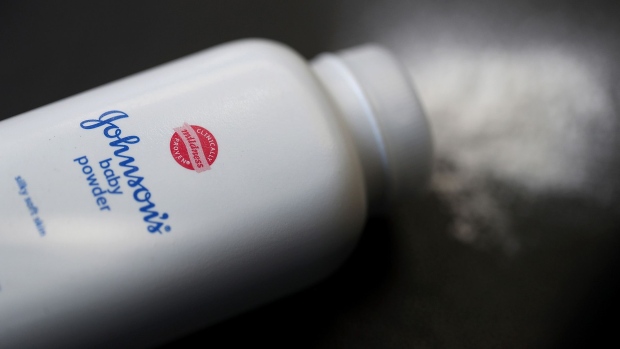Jun 1, 2021
J&J Must Pay $2.1 Billion Talc Award as Top Court Rejects Appeal
, Bloomberg News

(Bloomberg) -- Johnson & Johnson must pay a $2.1 billion award to women who claimed its baby powder was contaminated with cancer-causing asbestos, after the U.S. Supreme Court left intact the largest verdict in the almost decade-long litigation over the iconic product.
The top U.S. court without comment on Tuesday refused to consider J&J’s objections to a St. Louis jury’s 2018 finding that its talc-based powder helped cause ovarian cancer in 20 women.
J&J prepared for the appeal’s denial by announcing in February it was setting aside almost $4 billion to cover the St. Louis verdict. The company still faces more than 25,000 lawsuits blaming baby powder for causing cancers. J&J pulled the product off U.S. and Canadian shelves last year.
Jurors in the St. Louis case awarded each woman $25 million in compensatory damages. The panel then added more than $4 billion in punitive damages, making the award the sixth-largest in U.S. legal history. A state appeals court cut the award by more than half last year. The original verdict sparked a significant drop in J&J’s shares.
J&J, based in New Brunswick, New Jersey, has lost other cases at trial, with juries across the U.S. ordering it to pay hundreds of millions of dollars. Judges slashed some of those awards while others have been thrown out or are on appeal. J&J also has won some cases.
Asbestos, which is often found where talc is mined, is a recognized carcinogen.
Constitutional Claim
J&J told the Supreme Court the sprawling nature of the St. Louis case -- which originally combined the claims of almost two dozen plaintiffs from 12 different states -- made the trial so unfair it violated the Constitution’s due process clause.
The drugmaker said the trial judge needed five hours to instruct the jury, and the panel deliberated less than 20 minutes on average for each woman before awarding each identical awards regardless of the individual circumstances.
“If the due process clause means anything, it means that a defendant cannot be deprived of billions of dollars without a fair trial,” J&J argued. Business groups including the U.S. Chamber of Commerce backed the appeal.
J&J also argued that the punitive award exceeded the actual damages by so much as to make it unconstitutional as well. J&J pointed to past Supreme Court decisions that have put limits on punitive damages.
Lawyers for the women said J&J was asking the court to do something unprecedented and override state rules governing when lawsuits can be consolidated for trial.
“Consolidation in tort cases is commonplace, an essential practice for preserving the resources of courts and parties when common issues -- such as the product’s safety and the defendant’s knowledge of its danger -- predominate, as they did here,” the group argued.
The women also contended that J&J’s years of deceit about its product and disregard for the health of its customers warranted the punitive damage award.
The case is Johnson & Johnson v. Ingham, 20-1223.
©2021 Bloomberg L.P.